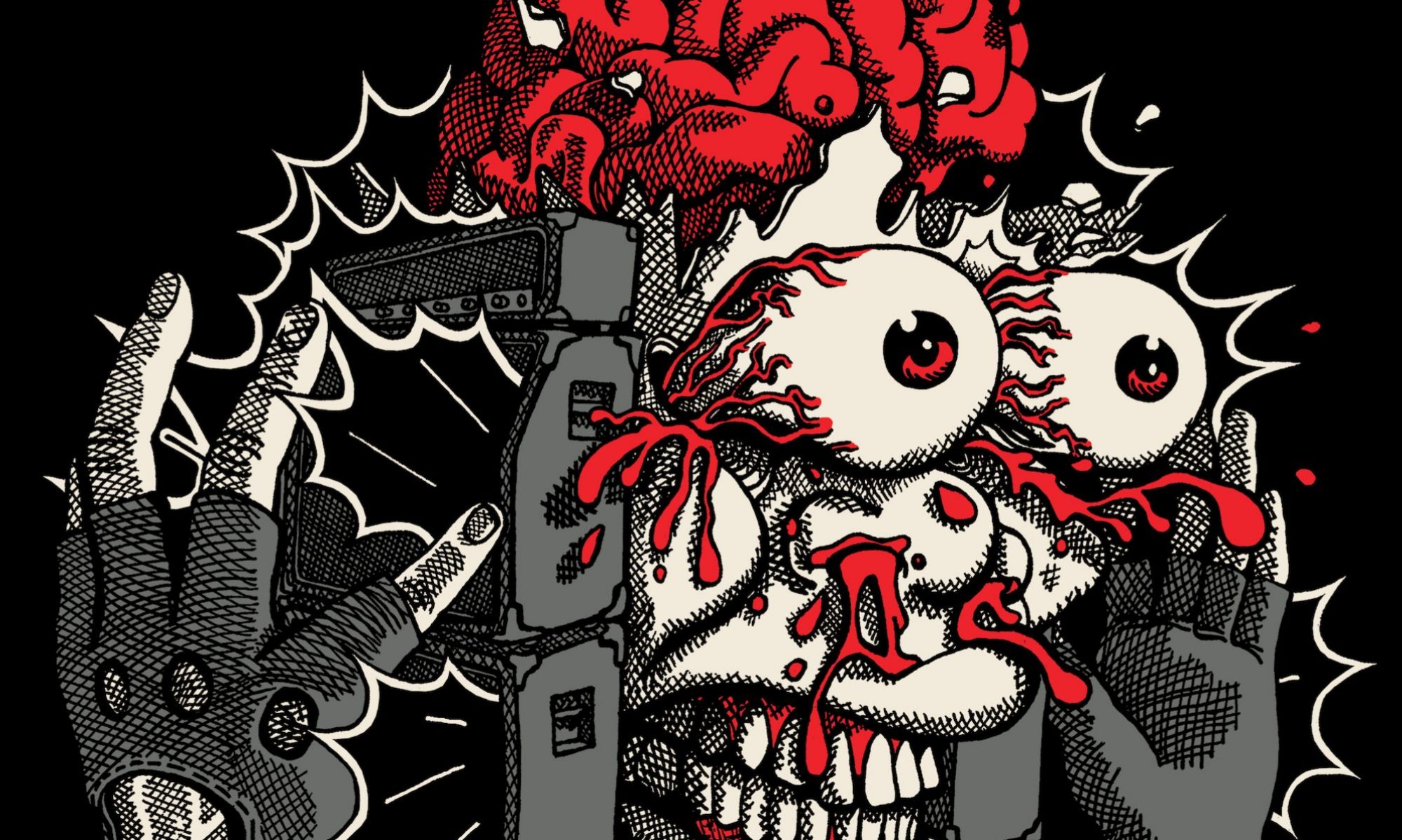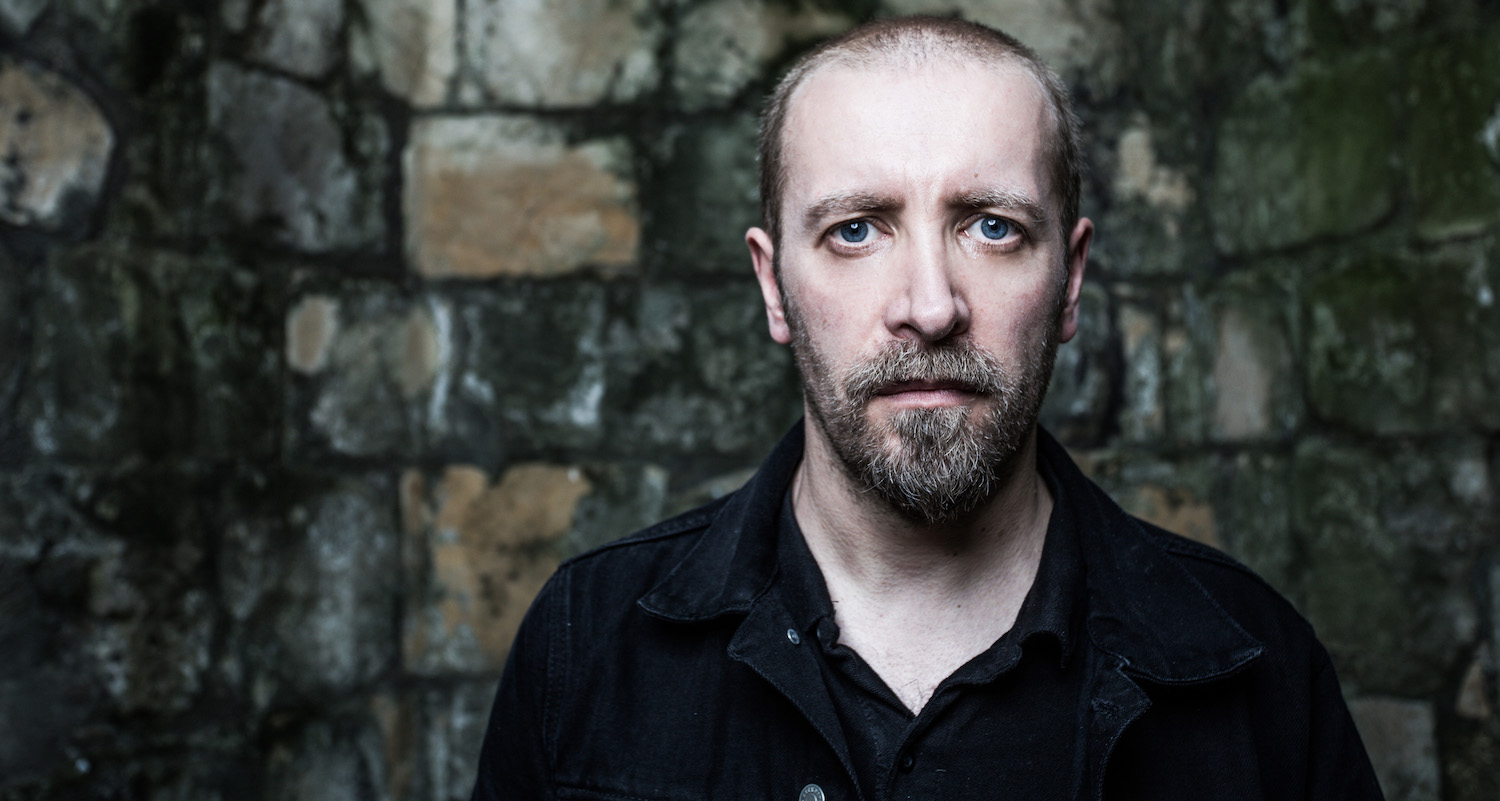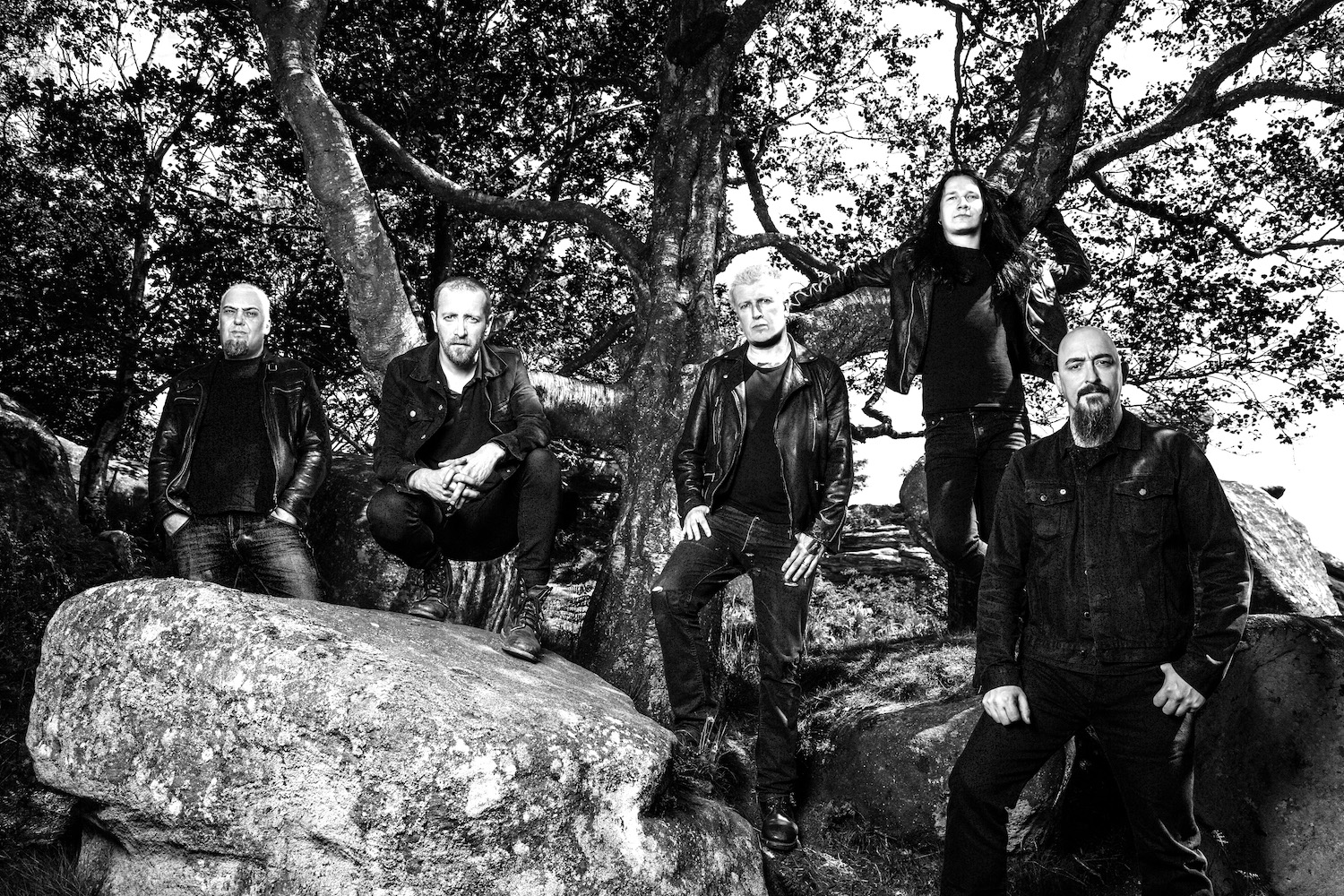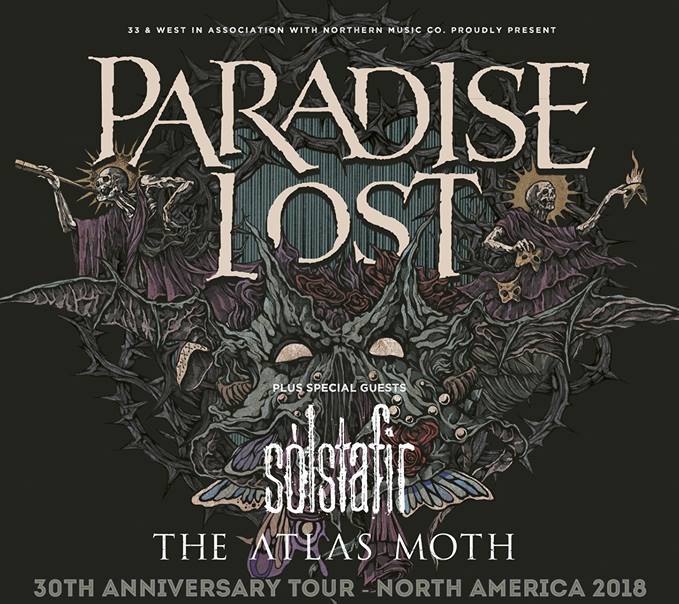British band Paradise Lost not only originated a unique cross-section of sub-genres of heavy music, they stayed with it and kept refining it, and have now been doing so for 30 years. Based out of Halifax, West Yorkshire, Paradise Lost combined their inspirations and influences from the worlds of death metal, doom metal and gothic rock to formulate their own signature style and over the years, have given heavy metal enthusiasts a lot to absorb and cherish, releasing as many as 15 studio albums till date, touring around the world many times over, and showing no signs of stopping any time soon. This Fall, Paradise Lost is launching their 30th anniversary tour with a North American headline run, also featuring support acts Solstafir and The Atlas Moth. Vocalist Nick Holmes recently spoke to Metal Assault in a highly insightful, in-depth chat, discussing the band’s 30-year career and lots more. Enjoy the conversation below.
Nick, it’s good to have you on Metal Assault. First of all, I want to talk to you about the 30th anniversary of Paradise Lost as a band. You guys have been at it for so long, I’m sure you don’t even realize how many years it’s been. Do you feel that it’s been that long?
It’s a strange thing, because when you start to write an album, and you record it and then you tour for the album. The touring cycle is may three years, and if you’re lucky, five years, it depends on how successful the album is. Nowadays the touring cycles seem smaller, but years ago it used to be a 5-year cycle. So, when you start doing that, before you know it, it’s gone really quickly. It’s unbelievable. I remember when Slayer did the Decade of Aggression CD, and I used to think, fuck, 10 years is a long time. And now it’s like 30 years for us. It’s pretty unbelievable. The only reminder is that our bodies have started to fail us on a regular basis (laughs).
I can imagine! And I think the great part about this band is, you’ve been able to keep almost all of the lineup together for all these years. I know that makes the anniversary celebration more valid, so to speak, because there’s a lot of older bands that do these anniversaries but they have one original member or something, and it doesn’t really make any sense to me. I’m glad that’s not the case with you.
Yeah! We’ve been lucky that we managed to make a career from the band very early in our lives. It was also a time when you could be a career musician. It wasn’t that difficult. Now it’s a lot more difficult. But we were at a time when all that mattered was if you did good songs and wrote good albums. Nowadays it’s everything else. Of course, there’s a massive amount of luck involved in this. Huge amount of luck. I guess we’ve been lucky as well. But we were very young when we made a career out of this band, and we’ve managed to keep chipping away ever since. But it doesn’t get any easier. If anything, it gets harder. It’s a tough gig, there’s no question about it. You’ve got to work hard, you know.
Exactly. And, I believe you have a tour of North America coming up soon, to celebrate this 30th anniversary. What can people expect from it in terms of the content of the set list and things like that? Is it going to be career-spanning?
Well, we’re still trying to test it. We’re looking at may be 50 songs that we’ve done over the last ten years, to see which songs people have liked and which ones they haven’t. Also, sometimes great songs don’t work live, so there’s always that aspect. The last couple of years we’ve put together a pretty strong set list. For this tour, it’ll probably be heavily based on what we’re doing at the moment, but changing a few things around as well. We haven’t been in the States for a good six years, so I would imagine most of the stuff we do, we’re probably going to play it in the States anyway. Obviously we’re still promoting the latest album Medusa, so we’re going to do at least three songs from that one as well. You can never play what everybody wants. We’d probably be on stage for six hours, I’d lose my voice and we wouldn’t be able to do the next show after that (laughs). So we’ve got to compromise a little bit. But yeah, it’s a good cross section of stuff, and that’s pretty much what we’re hoping to do.
Medusa, like you mentioned, is the latest album. I think that a lot of bands who are approaching 30 years in the business or thereabouts, they try to go back to the roots. Medusa to me is a bit of that, but also a representative of where Paradise Lost stands now and how it has developed over the years. Do you agree with that, and do you think it’s a good thing for this to be the latest album as you stand on your 30th anniversary?
You know, each album is very much like that. It represents where we were when we did it. We have little to no regrets about anything we’ve done musically, because it’s just what we wanted to do at the time and we’ve always given it 100 percent. It’s worked or it hasn’t. You can only do your best. We’ve always been very passionate about each album we’ve done. Not everybody has liked every album we’ve done, but we still did it with passion. Yeah, the new album is very much where we are now, but still, everything kind of goes in circles. When you get older, you get very misty-eyed and nostalgic about the things you did as a teenager. Everybody does, specially people my age really start to think about when we were kids and teenagers (laughs), and it was probably the greatest part of our lives. From the age of 16 to 25 is a really fantastic time, and the music you listen to in those years stays with you all your life. It never goes away. It’s the best part of your life in many respects. So yeah, thinking about that and going back to the heavy sounds was very natural for us to do. We re-recorded a song called “Frozen Illusion” (Japanese bonus track), and it’s one of the first songs we ever wrote. Re-recording it was just so simple and natural, it was almost like we’d just written it. So yeah, everything goes around in circles, I think.
Medusa is the 15th studio album you’ve put out. That’s a lot of albums in 30 years. Was that just a case of you guys being always creatively motivated to write albums, or was it part of a plan to release an album every 2 years?
No, we’d rather give it longer between albums! But there’s very, very few bands who can do an album every 5 years. Even bands that play arenas would probably struggle if they left too much of a gap between releases. You just can’t do that anymore. Music is very disposable nowadays. Even bands that people love, they still want new stuff quickly and it’s not like in the old days when it was like may be 5-6 years between records. Some bands can still do it, of course, but very few. So, in our instance we just have to keep chipping away, keep writing and keep touring if we have to be a professional, career band. If it means releasing more albums then so be it!
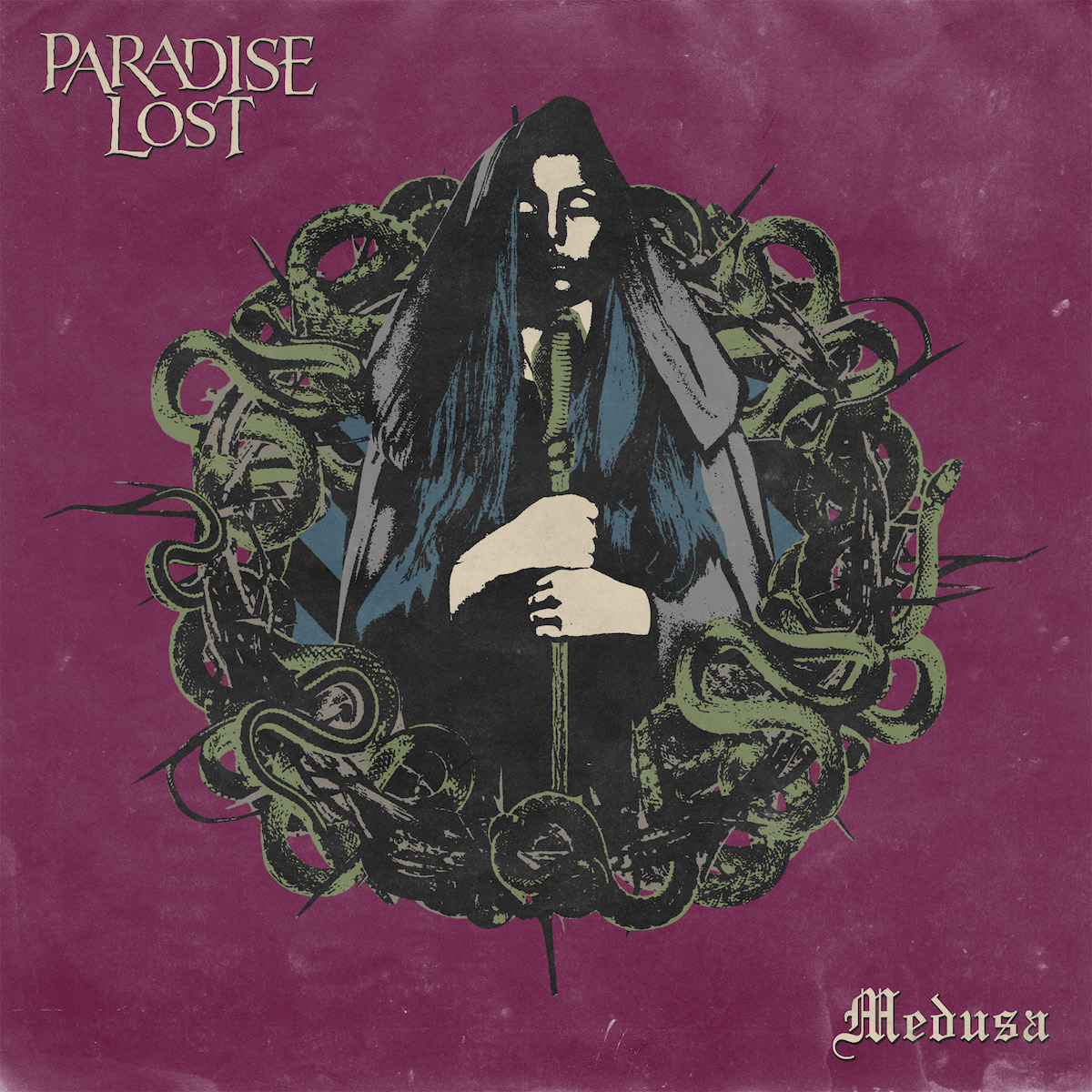
In terms of your own contribution, in songwriting or just in your performance on the albums, how do you think you’ve developed since the beginning of the band to now? I know that you’ve always introduced newer flavors into your delivery, even on the recent albums.
I think it’s just about knowing what you can and can’t do vocally. Many times in the past I tried to do vocals that weren’t really within my range, so then I learned to get comfortable with my limitations. When you first start off, you try as many different things as you can. I’ve always had a lot of admiration for the high-pitched vocals, like that of Geoff Tate and Bruce Dickinson. I really admire that kind of singing, but I cannot do that. Never in a million years. When I was a kid I tried it, and I knew that I couldn’t do that again. But I’ve always thought, wow, it must be great to have that in your armory. But I just sing within the range I’ve got, and hopefully I do the best I can.
So, those were the kinds of singers you were trying to emulate in your younger years? What about vocal inspirations for Paradise Lost?
Yeah, Bruce Dickinson, with a hairbrush in front of a mirror, when I was listening to the Piece of Mind album (laughs). But no, as far as death metal singers go, I’ve always liked a lot of them but I never really felt like I was trying to copy anybody. I’ve always liked Tom G. Warrior from Celtic Frost. I’ve always loved his voice. He does what he does, he is very unique and I can tell that he has his style. So yeah, it’s not necessarily about technical singing, it’s about what sounds good. You don’t have to be a technically brilliant singer to have a good voice. Celtic Frost is a good example of that.
Definitely. You’ve always done other things over the years. Has that helped you branch out from the Paradise Lost brand of music and stay motivated towards Paradise Lost?
Yeah, there was a time when we were sort of changing quite a lot and I wanted to try different vocals within Paradise Lost. I started bringing my cleaner voice more, because the death metal voice is quite a linear style and I was getting a little tired of it. I wanted to explore more melody with it. At the time we’d been doing death metal for a few years. It was around ’92 when we did the Shades of God album that I started changing my voice a little bit. Sometimes it works, sometimes it doesn’t. It’s just a case of finding a happy medium. But the death metal voice now, I’m quite comfortable with it. It sounds a bit different now than when I was a kid singing it, but I guess that happens with age, you know.
You mentioned Bruce Dickinson, and I wasn’t expecting that. Iron Maiden is my number 1 favorite band, so this is very cool. On that note, have you ever thought of doing something on the traditional metal side? May be not high-pitched singing but at least something along those lines as a side-project?
Well, I still love the old Maiden albums of course, but I don’t think I’m as much into that style nowadays. When I see the new bands do it, it doesn’t really flick my switch, unfortunately. I’m all about nostalgia and I still love the first four Maiden albums. That’ll always be great music. I put on “Children of the Damned” and I still love it even though I’ve listened to it hundreds of times. With all due respect to the new bands that are doing it, I haven’t heard any of it that I think is all that great. I just gravitate to the older, original bands that did it, I guess.
That makes sense. So, in terms of the style that you guys developed with Paradise Lost, the gothic death-doom if I can call it that, how did that originate?
When we started, we were more into the death metal thing, the very early demos, bands like Morbid Angel when they were on demo, Massacre, Death when they were called Mantas, Possessed, etc. But then I think it was probably Candlemass with the Epicus Doomicus Metallicus album, which really changed the game. It was sort of like Sabbath, but different from it, you know. No one was really doing that kind of doom metal with death metal singing, so we kind of just crossed the two. And then you go into the gothic stuff with the likes of The Sisters of Mercy, and we pulled in a little bit of that as well. So, I mean, I’m all for bands who try different things, try to create a new sound, and at least try to create their own sound. It’s too easy to listen to other bands that all sound the same and then you copy them and you sound the same. I don’t understand that. I’ve always tried to sound unique, and I think Greg’s guitar style is very unique as well. The way he plays is very different to a lot of people, so that’s a unique part of the band as well.
Talking of unique things, I believe you guys have done some special concerts, in other parts of the world, not in the States. Wasn’t there something that you did with an orchestra?
Yeah! A few bands have done it by now, but for us it was in Plovdiv in Bulgaria where we played with a live orchestra in 2014 and did an album out of it (Symphony for the Lost, 2015). Opeth has done it, Devin Townsend did it, Anathem did it before us. But yeah, it’s like this Roman theater in Plovdiv. It’s a big auditorium, a really nice place and we were lucky enough to play with a big orchestra there and a big choir. It was something we’d never done before and it was a really interesting experience. It’s a bit of a treat for bands to play there!
I brought this up because, that kind of thing, whether it be with an orchestra or anything which takes your music into a different arrangement, to me it always proves that there’s more to heavy metal than what somebody would think of it on the surface. There’s depth in the music. Would you say that?
Yeah! There’s a lot of riffs and lot of music in metal bands that’s very close to bands in other genres but people don’t realize it. Like, there’s a lot of common ground with minor chords. In the late 1980s, British pop music had so many similarities to metal, in song structure and things like that, which people wouldn’t necessarily see straightaway. So yeah, it’s quite fascinating. As soon as you put in a heavy guitar, it changes the feel of the song completely, but there’s lots of similarities that transcend genres, and people don’t pick up on that straightaway.
Coming back to the present, you have this North American tour. What does the band have in the works after that?
We’ve got a few shows scattered about, and towards the end of the year we’re looking at playing in Greece again. We’ve been there many times, in fact I think we’ve played in Greece more than any other band (laughs). I think we’re playing Tel Aviv in Israel again. But we’re also starting to think about putting together another album. The album-tour cycle seems to go around pretty fast!
– by Andrew Bansal
Paradise Lost links: website | facebook | twitter | instagram
Paradise Lost North American tour dates (remaining shows):
10/16/2018 – Vancouver, BC @ Rickshaw Theater
10/17/2018 – Portland, OR @ Bossanova
10/19/2018 – Los Angeles, CA @ 1720
10/20/2018 – Pomona, CA @ Glass House
10/21/2018 – San Francisco, CA @ Fillmore
